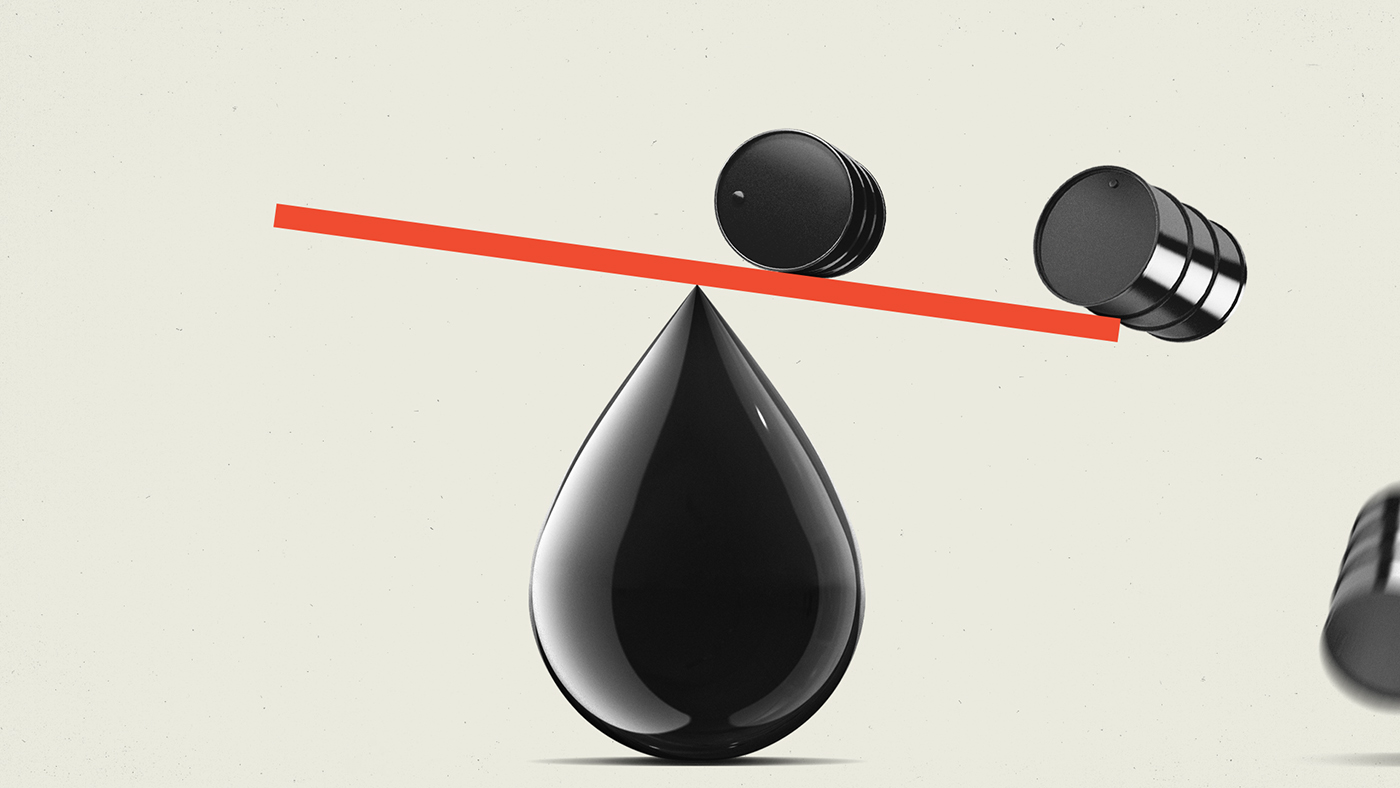Has the world finally reached ‘peak oil’?
Experts think the shift to clean energy is quickening but one says we should take the forecast with ‘a boulder of salt’

A free daily email with the biggest news stories of the day – and the best features from TheWeek.com
You are now subscribed
Your newsletter sign-up was successful
The International Energy Agency (IEA) says global oil demand will slow “markedly” in the coming years and a peak is “on the horizon”.
“The shift to a clean energy economy is picking up pace,” said the IEA’s executive director, Fatih Birol, “with a peak in global oil demand in sight before the end of this decade as electric vehicles, energy efficiency and other technologies advance.”
The report from the Paris-based agency, which was founded in 1974 to facilitate cooperation on energy and secure oil supplies, has reignited debate over whether the world has reached the point at which oil demand and production tops out and starts to decline – known as “peak oil”.
The Week
Escape your echo chamber. Get the facts behind the news, plus analysis from multiple perspectives.

Sign up for The Week's Free Newsletters
From our morning news briefing to a weekly Good News Newsletter, get the best of The Week delivered directly to your inbox.
From our morning news briefing to a weekly Good News Newsletter, get the best of The Week delivered directly to your inbox.
The milestone would be significant for the planet because burning oil, along with gas and coal, is “creating the vast amount of emissions causing the global climate crisis”, explained The Independent.
So “if peak oil is to arrive in the near future”, said Forbes’ energy writer Ariel Cohen, “then our current decarbonization strategies… may be sufficient to reach the objectives of the Paris Agreement by 2050 with a temperature increase well below 2C in comparison to pre-industrial levels”.
What the papers say
The IEA assessment “will make gloomy reading for the Organization of the Petroleum Exporting Countries [Opec] and other petroleum producers”, said The New York Times. The report is also “likely to add to fears among oil traders that China, for decades the key driver of global oil demand growth, no longer performs this role”, it added.
There is a “dawning realization that China’s economic recovery from Covid isn’t producing the same sort of oil demand growth that China had prepandemic”, Henning Gloystein, a director at political risk firm Eurasia Group, told the paper.
A free daily email with the biggest news stories of the day – and the best features from TheWeek.com
By the end of 2028, said the IEA, more than 155 million electric vehicles will have been sold globally, half of them in China. This will mean that three million barrels of oil a day “that might have been consumed will instead remain in the ground”, said the NYT.
The continued growth of the electric car industry will be a key driver in the development, agreed Bloomberg. “For more than a century,” said the news site, “two trends in global transportation have been relentless: humanity’s desire for more cars and the consumption of ever-more oil to fuel them,” but “the second part, at least, may finally be coming to an end”.
By 2027, electric vehicles will “force a reversal to the era of rising demand for oil used in transportation”. It’s true that in “areas outside of transportation, such as plastics, petrochemicals, manufacturing and agriculture”, oil demand will continue to rise, but analysts expect that, by 2029, the EV shift will “bring total demand to its apex”.
Some are more cautious. Take the peak oil prediction “with a grain – or boulder – of salt”, warned Axios. “Supply and demand are notoriously hard to game out,” and it’s what happens after we hit the peak – whether that’s “a plateau, a gradual decline, or a steep one” – that matters most. Don’t forget that “theories about ‘peak oil’ supply once dominated energy economics discussions for decades but never came to fruition”.
Peak oil has been “the holy grail of resource economics for decades: prized and just as elusive”, agreed Cohen. Expert predictions on the timing range wildly, from the end of the decade to the mid-2030s, 2040 and 2050. Others predicted oil demand would peak as far back as 2000. “Extremely knowledgeable professionals cannot agree on the basic mechanisms or timing of peak oil,” he wrote.
What now?
Global demand for oil will continue to rise but the rate of increase is “forecast to slow to just 400,000 barrels a day in 2028”, said The Times, down from the expected growth of 2.4 million barrels per day (bpd) this year and the 860,000 bpd rise next year.
But that still means the world is expected to use 102.3 million barrels of oil each day in 2023. And big oil companies are cashing in while they can.
“Shell will ‘ditch’ a plan to gradually reduce oil production over the coming years and choose instead to ‘stabilise’ production until the end of the decade,” said City A.M. The “bombshell announcement” means “a 2021 plan to gradually roll back production of oil appears to have gone by the wayside”, the paper added.
Then there are the unknowns. The IEA itself admits “a number of factors could upend its forecast”, The Independent said. Those include “global economic shocks, decisions by the oil-production nations in OPEC+, and changes in China’s refining industry”.
Chas Newkey-Burden has been part of The Week Digital team for more than a decade and a journalist for 25 years, starting out on the irreverent football weekly 90 Minutes, before moving to lifestyle magazines Loaded and Attitude. He was a columnist for The Big Issue and landed a world exclusive with David Beckham that became the weekly magazine’s bestselling issue. He now writes regularly for The Guardian, The Telegraph, The Independent, Metro, FourFourTwo and the i new site. He is also the author of a number of non-fiction books.
-
 The environmental cost of GLP-1s
The environmental cost of GLP-1sThe explainer Producing the drugs is a dirty process
-
 Greenland’s capital becomes ground zero for the country’s diplomatic straits
Greenland’s capital becomes ground zero for the country’s diplomatic straitsIN THE SPOTLIGHT A flurry of new consular activity in Nuuk shows how important Greenland has become to Europeans’ anxiety about American imperialism
-
 ‘This is something that happens all too often’
‘This is something that happens all too often’Instant Opinion Opinion, comment and editorials of the day
-
 The plan to wall off the ‘Doomsday’ glacier
The plan to wall off the ‘Doomsday’ glacierUnder the Radar Massive barrier could ‘slow the rate of ice loss’ from Thwaites Glacier, whose total collapse would have devastating consequences
-
 Can the UK take any more rain?
Can the UK take any more rain?Today’s Big Question An Atlantic jet stream is ‘stuck’ over British skies, leading to ‘biblical’ downpours and more than 40 consecutive days of rain in some areas
-
 As temperatures rise, US incomes fall
As temperatures rise, US incomes fallUnder the radar Elevated temperatures are capable of affecting the entire economy
-
 The world is entering an ‘era of water bankruptcy’
The world is entering an ‘era of water bankruptcy’The explainer Water might soon be more valuable than gold
-
 Fifteen years after Fukushima, is Japan right to restart its reactors?
Fifteen years after Fukushima, is Japan right to restart its reactors?Today’s Big Question Balancing safety fears against energy needs
-
 Zero-bills homes: how you could pay nothing for your energy
Zero-bills homes: how you could pay nothing for your energyThe Explainer The scheme, introduced by Octopus Energy, uses ‘bill-busting’ and ‘cutting-edge’ technology to remove energy bills altogether
-
 Climate change could lead to a reptile ‘sexpocalypse’
Climate change could lead to a reptile ‘sexpocalypse’Under the radar The gender gap has hit the animal kingdom
-
 The former largest iceberg is turning blue. It’s a bad sign.
The former largest iceberg is turning blue. It’s a bad sign.Under the radar It is quickly melting away